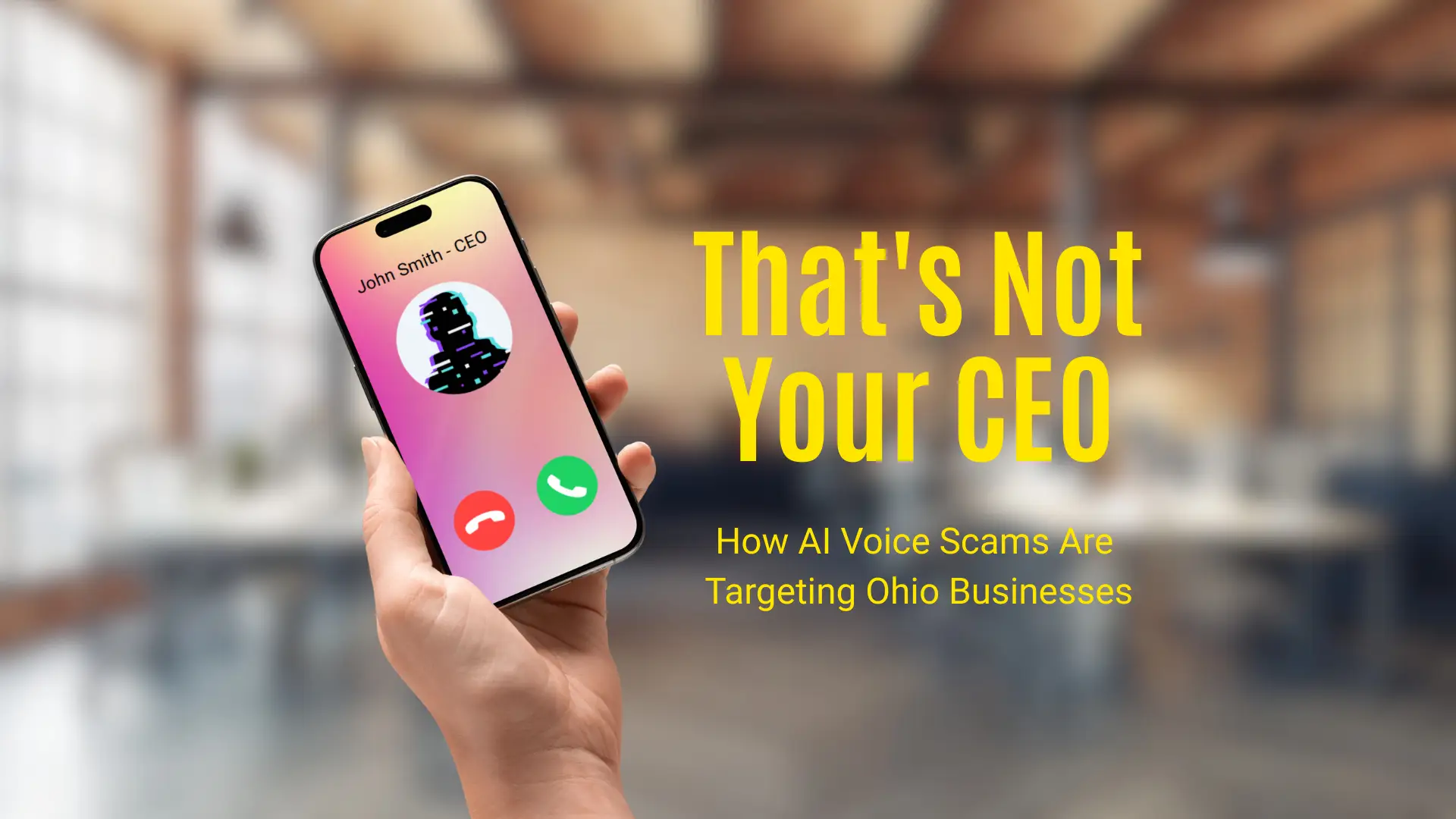Garbage In, Garbage AI: LLM Poisoning Risks
Artificial Intelligence. It’s the buzzword that’s either going to save humanity or, you know, lead to a very polite robot uprising. While we’re not...
3 min read
 Bill Monreal
:
August 14, 2025
Bill Monreal
:
August 14, 2025

Picture this: It’s a hectic Thursday afternoon. You’re trying to close out the week, and the phone rings. It’s your CEO. You’d recognize that voice anywhere. They sound a little rushed, maybe a bit stressed, but it’s definitely them. They’re off-site, working on a top-secret acquisition, and they need you to process an urgent wire transfer to a new vendor to seal the deal. It’s confidential, so don’t mention it to anyone. Just get it done.
You hesitate for a second, but the urgency in their voice is compelling. It’s the boss. You don’t want to be the one to hold up a major company milestone. So, what do you do?
For a growing number of businesses, this exact scenario is becoming a nightmare reality. And the voice on the other end of the line? It’s not your CEO. It’s a sophisticated scammer armed with one of the most powerful new tools in the cybercrime arsenal: AI voice cloning.
For years, we’ve been training our teams to spot phishing emails. We’ve taught them to look for bad grammar, suspicious links, and spoofed email addresses. But how do you train someone to distrust their own ears?
AI-powered voice cloning, a technology also known as “vishing” (voice phishing), has moved from the realm of science fiction to a very real and accessible threat. The software behind it can take just a few seconds of a person’s real voice, scraped from a podcast interview, a social media video, or even a company’s own voicemail system, and generate a synthetic, terrifyingly accurate replica.
The AI can then make that voice say anything. It can replicate tone, inflection, and cadence, making it nearly indistinguishable from the real person. The result is a perfect tool for social engineering, one that preys on our most basic human instinct: trust in a familiar voice. This isn't just a problem for massive corporations; it’s a direct threat to Ohio businesses of all sizes, where a single successful scam can be devastating.
The reason these vishing attacks are so effective is that they are a masterclass in psychological manipulation. The scammer creates an urgent problem that puts an employee in a difficult spot, forcing them to act quickly without thinking.
It usually starts with a sense of urgency and authority. The "CEO" will stress that the transaction is time-sensitive and highly confidential. This tactic is designed to short-circuit an employee’s critical thinking. The internal feeling of wanting to be a helpful, responsive team player overrides the logical part of the brain that might question the unusual request.
The problem is, once that money is wired, it’s almost certainly gone for good. And the fallout isn’t just financial. It erodes trust within the organization and can leave the targeted employee feeling tricked and humiliated.
This is a new kind of battle. You can’t block a familiar voice with a spam filter. You can’t hover over a phone number to see if it’s legitimate. The old defenses we’ve relied on are simply not enough to combat a threat this personal and convincing. This is where managed services come into play, moving beyond simple software and into strategy.
Fighting an AI-generated voice requires building a security culture that is resilient, skeptical in a healthy way, and empowered with the right procedures. It’s about creating a human firewall that’s just as sophisticated as the threats it faces. In this fight, a clear plan is the best weapon.
We happen to be a managed IT services provider Cleveland businesses trust. We help our partners build powerful defenses against these advanced threats. For us, this isn't just an add-on; it's foundational. Cybersecurity is in our DNA. A truly effective defense against vishing isn't a single product, but a multi-layered plan.
The threat landscape is always evolving, and AI is making it more complex than ever (though AI isn’t all bad). In any case, you don’t have to face it alone. Don’t wait until you’re on the phone, questioning whether the voice you’re hearing is real. Build a defense that’s ready for the future, today.

Artificial Intelligence. It’s the buzzword that’s either going to save humanity or, you know, lead to a very polite robot uprising. While we’re not...

I walked past a client’s sales desk last week (let’s call him “Jim”) and saw ChatGPT open on his second monitor. He wasn’t watching cat videos; he...

I swear, overnight, everyone on my LinkedIn feed became an “AI expert.” It was like a switch flipped, and suddenly every business guru was talking...